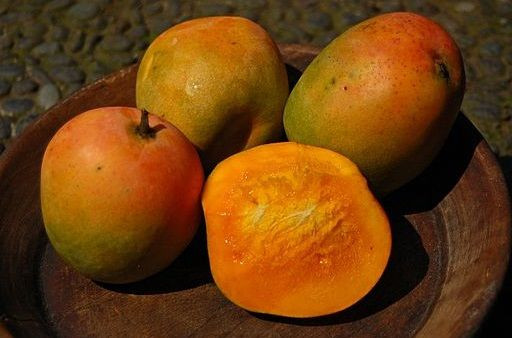Mango Polyphenols: Health Benefits May Reduce Blood Sugar and Inflammation

Mangoes may have even more health benefits than previously established. Preliminary nutrition data from two studies presented at the Experimental Biology 2013 conference in Boston suggest that mango polyphenols may help lower blood sugar and fight inflammation. Elevated blood glucose levels can lead to diabetes or obesity over time, and inflammation is linked to cancer risk.
Polyphenols are a diverse group of organic micronutrients found in plants, and many compounds in different foods have been linked to specific health benefits.
Mangoes are a particularly rich source of polyphenols, including antioxidant compounds like mangiferin, which may promote metabolism and fight diabetes; quercetin, which fights inflammation and hypertension; and kaempferol, which fights cancer growth.
Lowering Blood Glucose Levels
Dr. Edralin Lucas of Oklahoma University led a study in which 20 obese adult participants added 10 grams of dried mango to their daily diet for 12 weeks. By the end of that period, the participants' blood sugar levels had significantly decreased, though the average distribution of fat did not change much.
Dr. Lucas said in a news release that these results mirror the findings of a recent animal study, which found that mango consumption reduced blood sugar in mice that ate high-fat diets.
It's still unclear exactly how mango polyphenols exert this effect, though Lucas says that previous research has shown that polyphenols like catechins from green tea and anthocyanins from grape seed, which are also present in mangos, help reduce fat tissue.
While promising, the findings are not yet definitive enough to recommend mango consumption along with proven methods of lowering blood sugar, like getting regular exercise and limiting dietary intake of processed sugars and refined carbohydrates.
Fighting Inflammation
Dr. Susanne Mertens-Talcott of Texas A&M University found that mango polyphenols inhibit the inflammatory response in cancerous and non-cancerous breast cells isolated in lab cultures, though more research is necessary to find out whether they work the same way in humans.
These findings build on her previous research, which found that mango polyphenols limit breast cancer cell growth and reduce tumor size in mice. A particular class of compounds called gallotannins may also promote cell death in colon cancer cells without damaging normal cells.



























